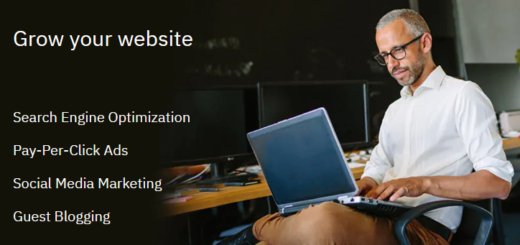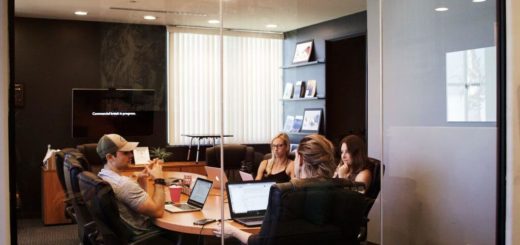How to Manage Your Business Effectively in 2020

2020 has been giving the business world the side-eye for most of the year. The usual plans many business owners had at the beginning of the year had to be revised or reevaluated. COVID-19 has completely changed the business landscape as we knew it.
The world has had to adjust to a new normal, which has played havoc with every sector. Nevertheless, the show must go on. Businesses must become more resilient. Simply put, this means that enterprises must adopt strategies to help them deal with crises.
The unpredictability of the business environment demands that businesses become more pliant. Hence, business owners must figure out new strategies that will work for enterprises during the COVID crisis.
Running Your Business in the New Normal
Lots of businesses are on lockdown to help halt the spread of the coronavirus. This has led to the disruption of the usual business activities due to factors such as:
- Furlough: Many employees have to stay home
- Disruption of standard supply lines
This has been especially hard on small and medium enterprises that may be grappling with dwindling capital. Additionally, demand has gone down, and raw materials are hard to come by.
Companies have to go back to the drawing board. However, thanks to technology, all is not lost. You can still have your business stands from stands finder worldwide featuring on your digital platforms.
Here are a few strategies that you can adopt to ensure your business is not adversely affected by the pandemic:
1. What Can You Control?
There are a few things that we have no control over. For instance, fretting over when the pandemic will end will only stress you out. No one has control over this one. Hence, the best thing you can do for your business is to focus on what you can control.
You can focus on issues such as the following:
Maintaining Your Customers
This includes maintaining the quality of your product as well as your services and value orientation. You must keep in touch with your employees to ensure that company culture is still practiced even if they are working remotely.

Your Business Plans
The business plans you had set at the beginning of the year may now be null and void. You cannot work with those in mind. You have to start again. Some of the issues you may need to focus on in this new dynamic include the following:
- Growth
- Expenditure
- Earnings
- Sales and targets
What assumptions do you have concerning earnings and expenditure? What are your new sales targets? Setting impossible to reach goals will only frustrate your workforce. Remember that many of your customers, as well as prospects, may not have the same earning power they are accustomed to.
Sustaining Your Capital
The expenditure must go down. Only spend money when you must.
A Robust Balance Sheet
Sustain a healthy balance sheet: more assets than liabilities. A business with a healthy balance sheet is likely to survive any crisis.
2. Evolution
The conventional workplace has transitioned, and businesses have no choice but to keep up. The success of any business depended on physical contact between the company and its customers.
Fortunately, technological advancements ensure that some form of contact is still maintained. Digital touch is the way to do business these days. Also, your staff may be working remotely to help flatten the curve.
Digital platforms such as Zoom and others are used for education as well as company meetings. What needs to be done is to make them more effective by increasing security and sustainability for long-term use.
Word of caution; businesses must be careful how they transition into this new normal. You may or may not have seen some of the Zoom company-meeting videos shared online. While some have provided some much needed comic relief amid the hard times, they have workers being increasingly careful.
Also, it is essential to respect each other’s time by:
- Making the meetings short
- Clarity in communication
- Using collaboration tools such as emails
- Strengthening work relationships by incorporating travel
Businesses must also provide support for their employees who are working remotely. The distractions of home life may appear on screen sometimes. Your reactions to these may make or break your employees, making the new working dynamic stressful for everyone.
3. Harnessing New Business Opportunities
Many business people are unaware that it is possible to grow your business even in these uncertain times. As a result, they may fail to see opportunities when they arise. However, many companies are open to exploring opportunities they may have disregarded in the past.
You may need to look into alternative channels to grow your business. For instance, find out what people need and exploit the opportunity to provide it.
Some enterprising business owners realized that masks may be around for a while yet. So, they launched customized masks, child-friendly masks, fashion-conscious masks, and more. Others have begun selling sanitizers and other hygiene products to keep the cash flowing in.
Contact manufacturers and let them know what you are capable of providing. If you can make the product yourself, get down to it, and find a market. You must be adaptable as well as willing to try new things to bring in more business.
4. Boost Production of Your Winning Products
Suppose your company sells products that are vital in the pandemic, such as ventilators and toiletries, double down on those. This may mean decreasing production on other products even if they have been the biggest sellers in the past.
Your team can also identify the customers that have been buying these products. Additionally, it targets markets that can use the products. In these trying times, that may very well be everyone.
Conclusion
COVID-19 has changed the game, and the players must adapt. Digital interactions have taken the place of physical ones due to the rules of social distancing and self-isolation. The focus is more on personal safety rather than on the economy.
However, technological assistance has ensured that companies are still running on a different scale. A crisis of this scale forces people to transition and find new ways of doing things. With the uncertainty surrounding the pandemic, the solutions we come up with must be long-term.














